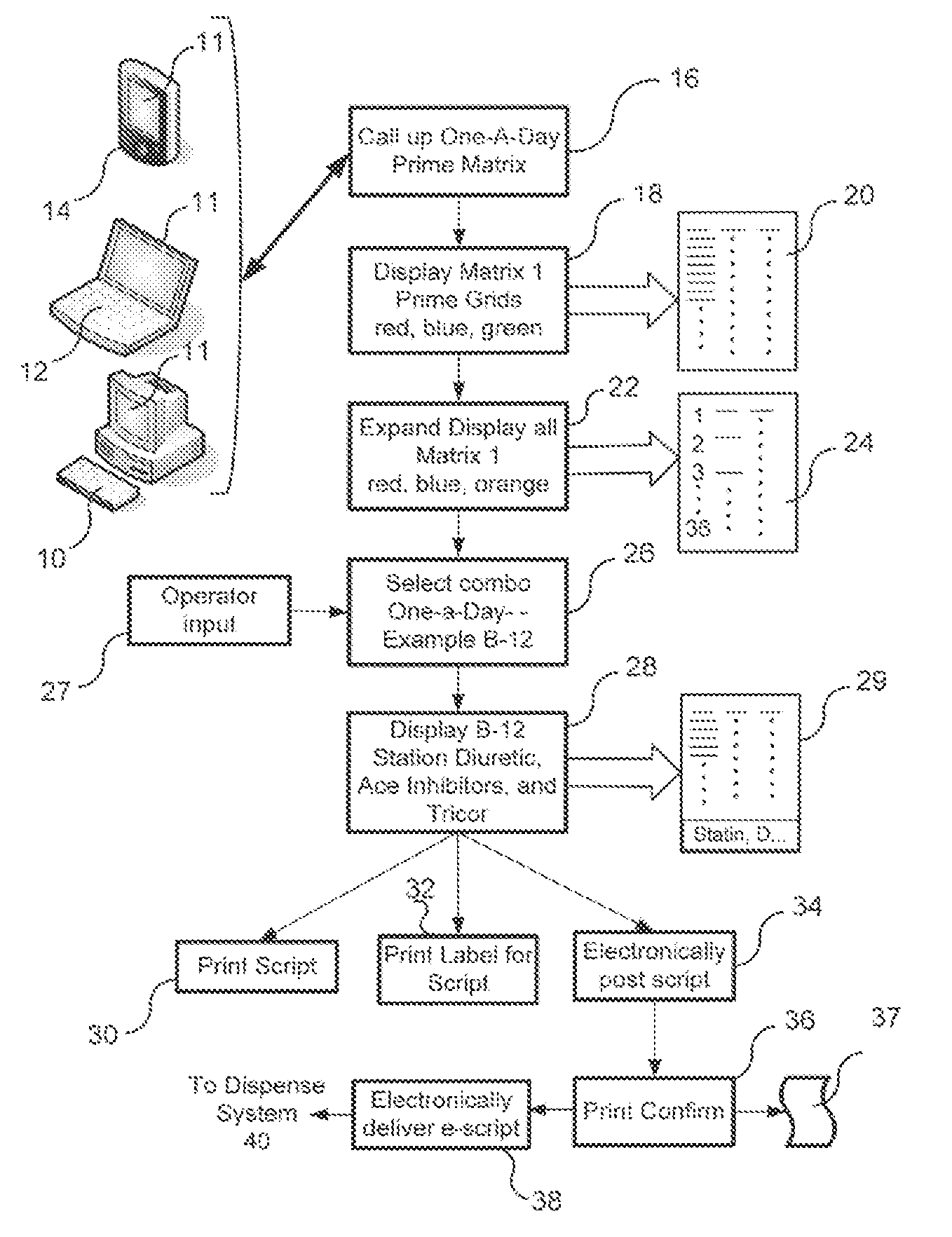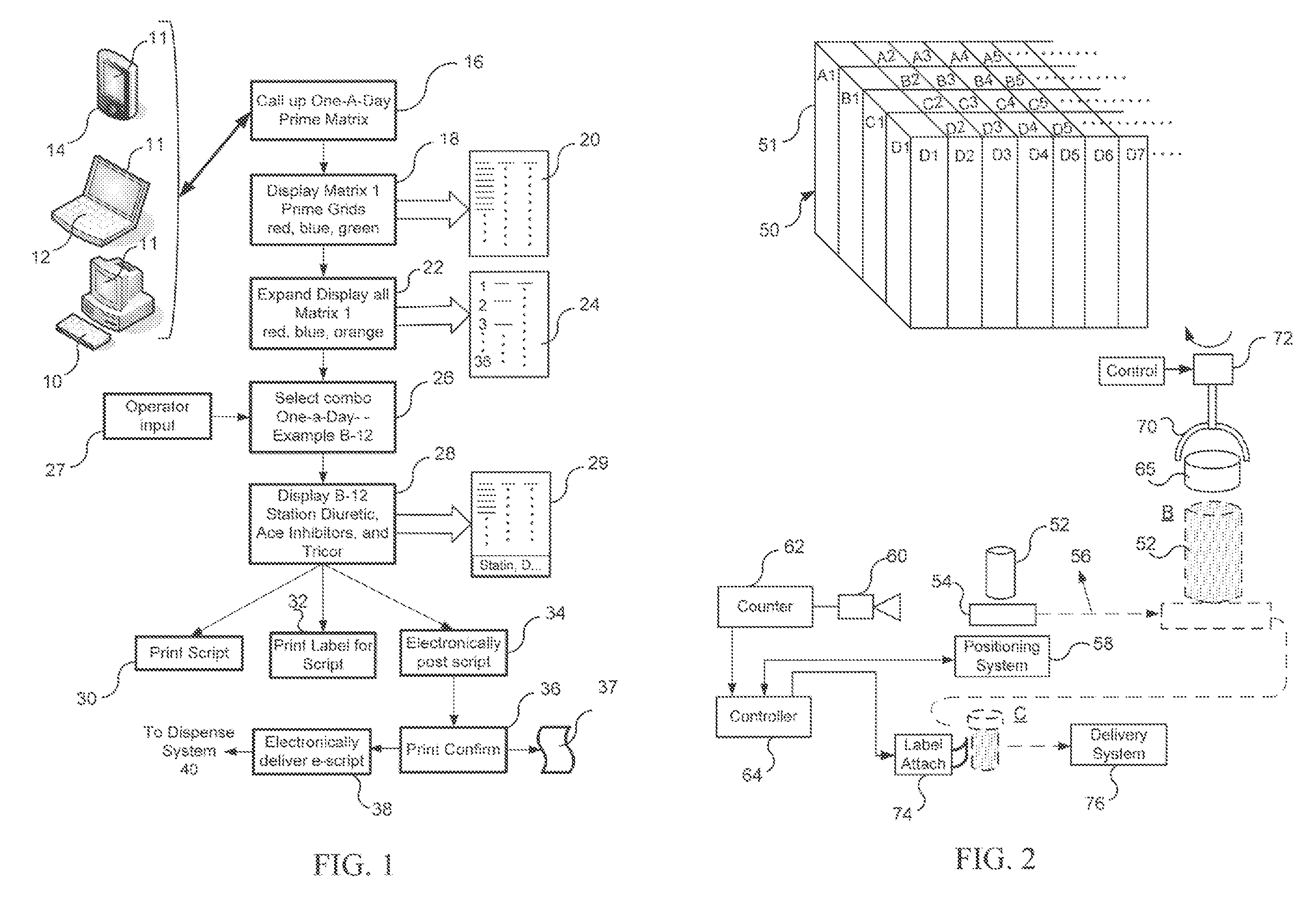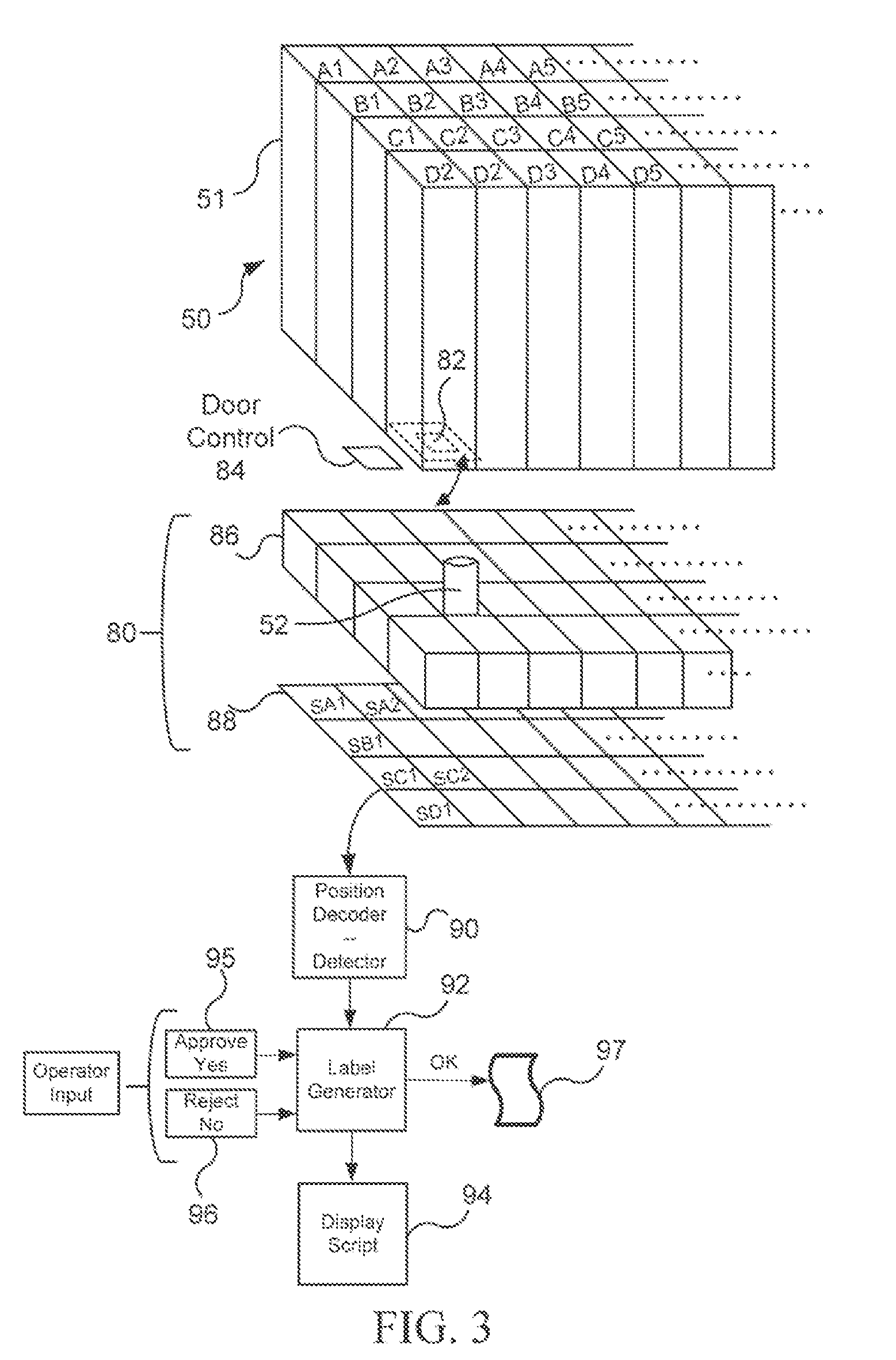Pharmaceutical Packaging and Method for Delivery of Same
a technology for pharmaceuticals and packaging, applied in the field of pharmaceutical packaging and delivery methods, can solve the problems of not using predisposing risk factors, high blood pressure is also a major risk factor for stroke and heart disease, and the vast untreated condition of hypertension, etc., to facilitate the selection of treatment regimens and/or the change of dosages, enhance compliance, and facilitate the effect of adjusting dosages
- Summary
- Abstract
- Description
- Claims
- Application Information
AI Technical Summary
Benefits of technology
Problems solved by technology
Method used
Image
Examples
example scenario
[0249]The following is an example of how an embodiment of a Disease Management System can function. Other embodiments, may utilize more, fewer, or different components or functions. Also, the functions performed in this scenario are merely examples. Other components or functions are described below and can be used in a different order. For this scenario, assume the patient is a male, non-smoker who is 50 years of age with high overall cholesterol, moderate good cholesterol, and moderate to high blood pressure. In an embodiment, his coronary heart risk profile evaluation would score as follows:
TABLE 16Question or ConditionAnswerScoreAge503Total Cholesterol (240-279)2552HDL Cholesterol (50-59)520Systolic Blood Pressure (140-159)1452DiabetesNo0SmokerNo0Total Score7
A total score of “7” on the coronary disease risk profile from table 16 can then be plotted on the risk assessment table (Table 7 above) along the row indicated by the number 7, and intersecting with the column with an age he...
PUM
 Login to View More
Login to View More Abstract
Description
Claims
Application Information
 Login to View More
Login to View More - R&D
- Intellectual Property
- Life Sciences
- Materials
- Tech Scout
- Unparalleled Data Quality
- Higher Quality Content
- 60% Fewer Hallucinations
Browse by: Latest US Patents, China's latest patents, Technical Efficacy Thesaurus, Application Domain, Technology Topic, Popular Technical Reports.
© 2025 PatSnap. All rights reserved.Legal|Privacy policy|Modern Slavery Act Transparency Statement|Sitemap|About US| Contact US: help@patsnap.com



